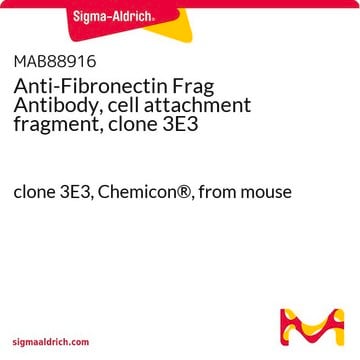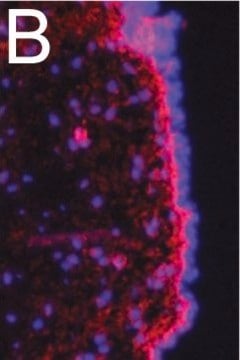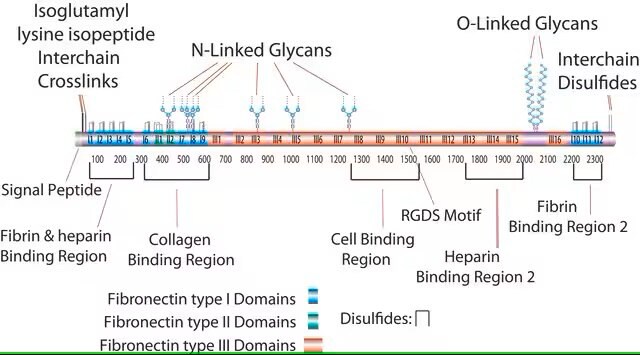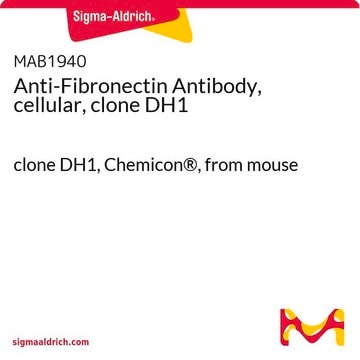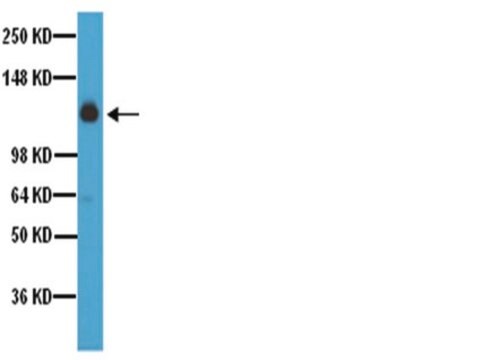MAB1934
Anti-Fibronectin Antibody, cell binding peptide, clone 784A2A6
purified antibody, clone 784A2A6, Chemicon®
About This Item
Productos recomendados
biological source
mouse
Quality Level
antibody form
purified antibody
antibody product type
primary antibodies
clone
784A2A6, monoclonal
species reactivity
human, chicken
manufacturer/tradename
Chemicon®
technique(s)
ELISA: suitable
western blot: suitable
isotype
IgG1
UniProt accession no.
shipped in
wet ice
target post-translational modification
unmodified
Gene Information
chicken ... Fn1(396133)
human ... FN1(2335)
Specificity
Immunogen
Application
Microscopy
Western blotting at 1-5 μg/mL
Cellular Adhesion Studies
Note: Dilution without addition of carrier protein may cause denautration or adherence of the antibody to the vial. Dilution into a 1% bovine serum albumin containing buffer is recommended.
Optimal working dilutions must be determined by end user.
Cell Structure
ECM Proteins
Physical form
Storage and Stability
Other Notes
Legal Information
Disclaimer
Not finding the right product?
Try our Herramienta de selección de productos.
Storage Class
10 - Combustible liquids
wgk_germany
WGK 2
flash_point_f
Not applicable
flash_point_c
Not applicable
Certificados de análisis (COA)
Busque Certificados de análisis (COA) introduciendo el número de lote del producto. Los números de lote se encuentran en la etiqueta del producto después de las palabras «Lot» o «Batch»
¿Ya tiene este producto?
Encuentre la documentación para los productos que ha comprado recientemente en la Biblioteca de documentos.
Nuestro equipo de científicos tiene experiencia en todas las áreas de investigación: Ciencias de la vida, Ciencia de los materiales, Síntesis química, Cromatografía, Analítica y muchas otras.
Póngase en contacto con el Servicio técnico